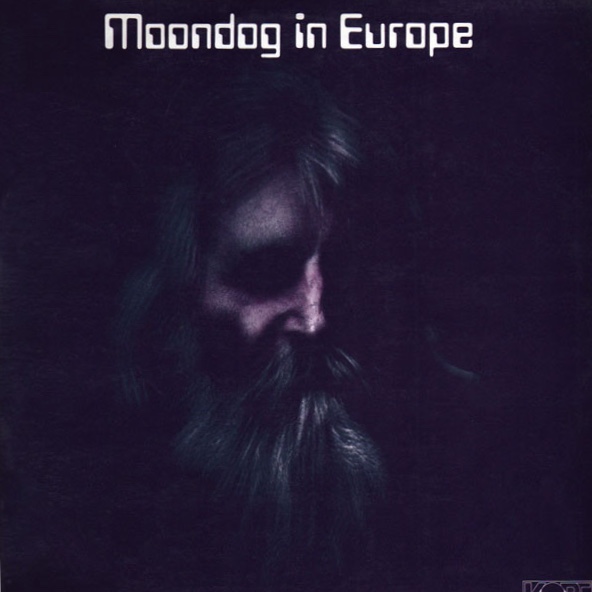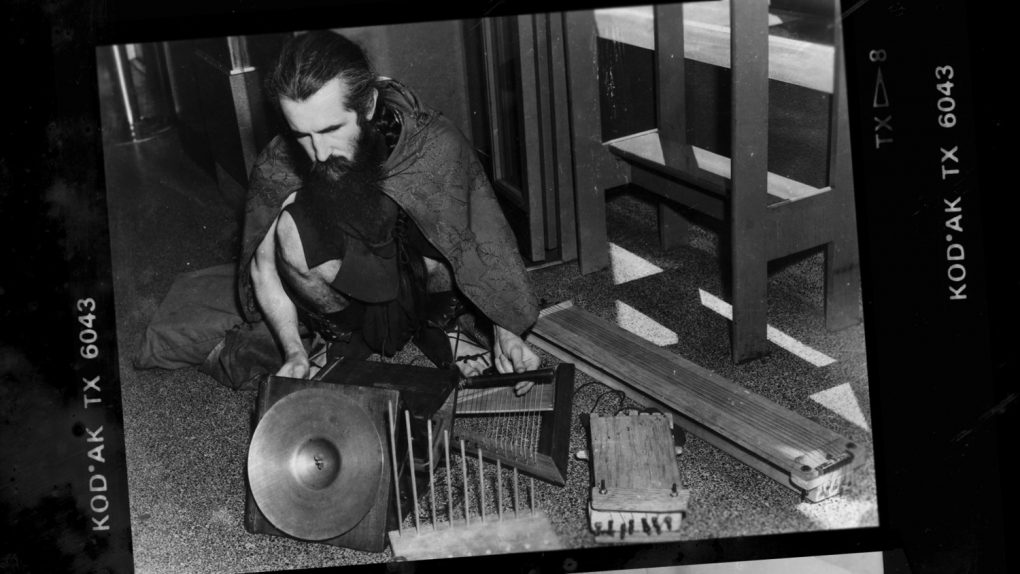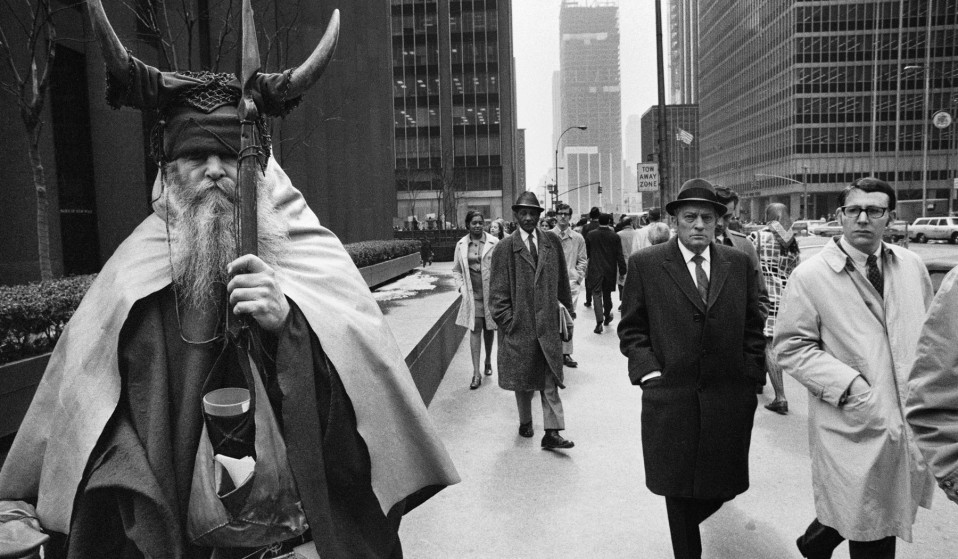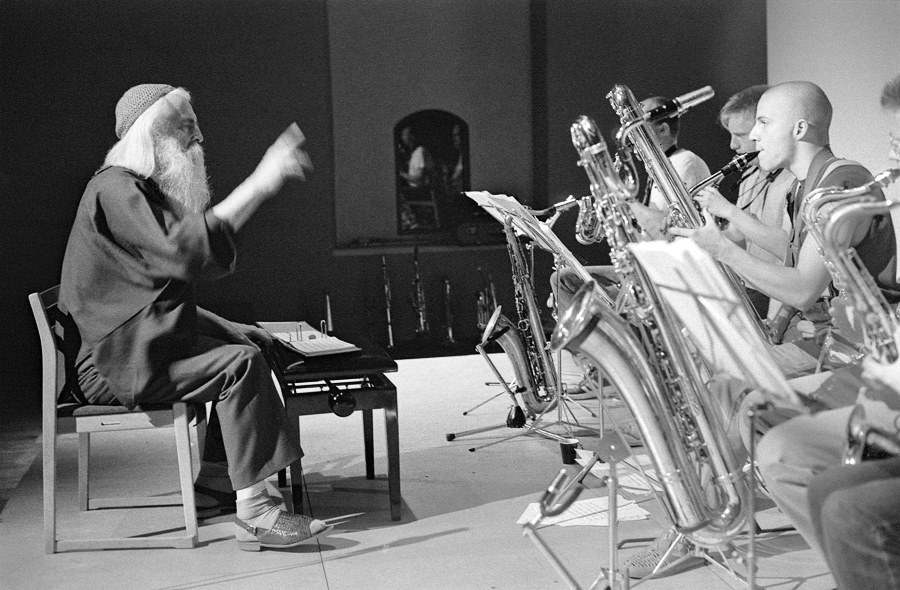
For 30 years, people walking 6th Avenue between 52nd and 55th streets in New York were treated to a startlingly unexpected sight: a Viking.
Complete with spear, helmet, and long white beard, the figure would usually be standing quietly, stoically, eyes closed if not obscured by his hair or helmet. In photos and videos, he looks something like a Zen Gandalf, or a ready-for-seafaring-war version of Santa. He was neither of those things, of course, but the truth is almost more fantastical.
Born Louis Hardin in Kansas in 1916, his life’s adventure would take him just about as far from Kansas as it is possible to go without owning a pair of red shoes.
At age 16, he was permanently blinded when he picked up and played with a curious object that turned out to be a dynamite cap. During his recovery, his love of music, which had been evident in his childhood, returned with a vengeance. Perhaps, having lost his sight, he took solace in his sense of hearing.
He learned more and more about music – through both formal teaching and self-teaching – and by his 30s had landed in New York with dreams of being a composer. But this was straight-laced, suit-and-tie Manhattan in the 1950s, and anyone who might have opened a door for him was put off by his unusual appearance. He remained, happily, a street performer.
He wrote and sold poems on the street, composed music, and invented percussive instruments with the help of a local cabinet maker.
I’m not making this up.

By the 1960s, however, New York was changing, and the times were catching up to Moondog. He influenced jazz legends like Mingus and Parker, young composers like Reich and Glass, and his music was covered by Janis Joplin. CBS records gave him a full orchestra in 1969 and released an album of his work.
Despite his growing fame and resumé, his day-to-day life remained the same. He stood on the same corner, playing, writing, begging for spare change.

And then, suddenly, he disappeared.
Or at least, New Yorkers thought he did. Commuters who had come to depend on his presence immediately noticed his absence in 1972, they understandably assumed that he had died. They must have figured that a quarter-century of standing on a New York street corner had finally taken its toll.
Only he wasn’t dead. He was in Germany.
Again, I’m not making this up.
A German radio station had invited him to play a series of shows. Moondog, having an obvious affinity for European culture, and a longstanding love of the classical German composers, took the offer and flourished. He would live in Germany for the remainder of his life; first on the street, then at the home of a family who took him in, amazed by the fact that a remarkable composer would be living on the street.
With stable housing and steady meals for the first time in his life, Moondog composed prolifically, with his music released by a publishing company set up by his adopted German family. It was there that he recorded the piece of music you’re hearing now.

He would return to New York in 1989, but not to a street corner: he was invited to conduct a concert of his own music with the New York Philharmonic.
I couldn’t make this up if I tried.
Moondog’s music first entered my ears in 1999. However, I didn’t know it was Moondog’s music. The piece was “Moondog’s Lament,” and I heard it as a sample in Mr. Scruff’s “Get A Move On,” which was one of the grooviest tracks of the end of the century. That track was released in June of 1999. A few months later, Moondog died peacefully in Germany.
Now, 20 years after his death, a documentary, “The Viking of 6th Avenue” is in the works that will tell his story far more eloquently than I ever could in a blog post…
…or at least, a documentary was in the works. After a successful Kickstarter campaign, a slick trailer, and optimistic updates about post-production on the movie’s website, it’s unclear when, or whether, the movie will be released. Release was originally scheduled for 2017, and here we are in 2019.
As of this writing, the most recent update on the film’s website is nine months old.
Are they stuck in legal troubles with Moondog’s estate? Did they run out of money? Or did the filmmakers take a cue from their subject and just vanish and move to Germany?
What makes this a beautiful song:
1. The percussion echoes the beginning of Moondog’s life, when he would make drums out of cardboard boxes.
2. The strings echo the end of his life, when he had finally earned the opportunity to conduct a full orchestra.
3. The two-against-three timing is typical of the way Moondog would play with time signatures. He once said, “I’m not gonna die in 4/4 time.” A fitting epitaph for someone who made a life out of being off-beat.
Recommended listening activity:
Standing on your favourite street corner.